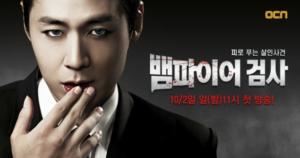A note before I get started: this book should come with one of those advisory warnings, except instead of warning parents against explicit lyrics, it should just warn everyone about lyrics. Just lyrics. Because this song has been stuck in my head for a week. Do you know how many years it’s been since I thought of The Darkness, Maurene Goo? Do you? So many years! And now it’s all I can do to get that falsetto out of my head! Do you believe in a thing called mercy, Maurene? And I even like this song!
WARNING. You better like this song or be able to get used to it.
Ahem.
Anyway, like Caraval and Crown of Wishes, this book bears certain resemblances to Enter Title Here, the story of another book smart but naive high school senior who wants to “achieve” a romance primarily via research–and then go to Stanford. And they’re both Desi–although Rahul Kanakia’s protagonist Reshma is ethnically Indian, whereas Maurene Goo’s heroine is just named Desi. Again, this isn’t an attempt to pit the authors against one another or imply anything sordid. I’m not even sure in this case that if you like one, you’ll like the other, since Desi is cute and nice, and Reshma was ruthless and scheming. I’m just observing the way that these trends are swelling and receding in YA, trying to capture bits and pieces of what it is to be a certain age and feel a certain way.
These books are especially concerned with the overachievers. I heartily endorse this trend since I was definitely a type-A bookworm who struggled socially but still managed to have a not-terrible high school experience. Earlier on in the history of YA, many protagonists were “nerds” by the 80s definition of the term, true social outcasts. Nowadays, being a nerd is cool and the term encompasses a much, much more diverse area of interests. It’s good to see YA reflecting this change, showing us the new landscape of pressures and possibilities.
Desi is all about the pressure–it’s the thing propelling her to fight through her cold to organize a school event in the very first scene, and it propels her through any number of clubs, volunteer opportunities, AP classes, and other resume-building activities that will get her into Stanford and then into med school. And she does it all with a smile, so that her single dad won’t worry about her more than he has to. The only smudge on her immaculate life is her complete inability to interact with attractive guys: every time she tries, she does something unbelievably embarrassing that scares them away.

In comes Luca, a transfer student who captures her heart and her imagination when he shows up and draws on her AP English assignment (it’s more romantic than it sounds). Determined not to be a “flailure” once again, she decides to do the thing she does best: make a plan and stick to it. And who is there to give her these instructions? Not her best friends. Not even her dad, who had an epic romance with her now-deceased mother. No, she’s going to get her information from KDramas.
If you’re not familiar, Korean dramas have been steadily growing in popularity, much like with anime in the 80s and 90s. South Korea has had an enormous boom in the entertainment industry, and since the dramas are single-season complete stories, they can be produced (and consumed) in rapid succession. The production values are fairly high, and so is the drama–illness, violence, family drama, wealth, beauty…these neatly packaged little gems have it all. Sometimes they even have vampires who are prosecutors! (That one is called Vampire Prosecutor. Duh.)

I watched KDramas during a specific period in my life, so I’m sure I’m not getting all the references in this book. I do get some of the older ones (yay, Protect the Boss and Autumn Fairy Tale!), and whenever Desi has one of her flails I also hear the twangy bass cue from My Name is Kim Samsoon (man this book is doing weird things to my internal soundtrack)—so I assume that it will appeal to a broad base of KDrama fans. You don’t need any specific knowledge, though. Most of the references are either explained or basic to begin with, and while I was hoping for a deeper examination of Korean or Korean-American culture, this book is itself a RomCom and not an exposé.

You don’t NEED to do research, but…(Descendants of the Sun)
There are two dramatic issues by the end, one that I was surprised to see show up and one that was so painfully inevitable that I cringed not at Desi’s suffering but at the whole agonizing reality of RomComs and KDramas in general. But that’s kind of the point, right? It’s hard to get too mad at what is meant to be a self-aware look at KDramas, not a rip-off. I’m not sure it says much more about the stupidity of RomCom conflict than that it is stupid, but also that love is worth being a little ridiculous for–and that’s okay. This book is light. It’s not a searing indictment, it’s a love story within a love story–one to the gooey teenage first love, and one to KDramas themselves, which are problematic (like everything) but still wonderfully fun.
The other issue is one that baffles Westerners more often than not. A staple of the drama is when one of the heroes or heroines faces a difficult choice that might impact their love interest, and instead of deciding to talk about it with said love interest, they make a unilateral decision and say nothing. This inevitably causes heartache and confusion, and the love interest always gets the wrong idea. Yet it’s all for the love interest’s benefit! And they don’t know because…reasons! Oh, the tragedy!

A DOCTOR. (Daniel Henney, Samsoon)
Yeah…sometimes the writers do manage a true tragedy, a sad situation that arises from the best instincts of all parties involved being at odds. Other times, it’s just kind of a frustrating mess where you yell at your TV and wonder how we survived as a species, or why we bothered to develop language if no one uses it. Desi’s is a bit of both: the mess is of her own making, but she’s trying to spare Luca the pressure of worry at a time when he’s already worried. Unfortunately, she’s also trying spare herself: she’s not prepared to examine the difficulties of long-distance dating or her own insecurities regarding her future. She wants to go to Stanford and be a doctor—exactly like her dead mother. There’s some stuff to unpack there, but this book has a light hand with anything tragic. Desi, after all, is a character, not just a trope, and one of her characteristics is her relentless determination and optimism. She doesn’t brood. She gets planning.
This gives the book an overwhelmingly cheerful tone, even in the midst of awkwardness or unhappiness. If you need a counterpoint to something like The Beast is an Animal or others, this is a welcome relief full of lighthearted laughs and hard work paying off.
Also I think The Darkness owes Goo an obscene amount in marketing fees because seriously. This song. It isn’t going away. Send help. And Peppero. And Won Bin.

